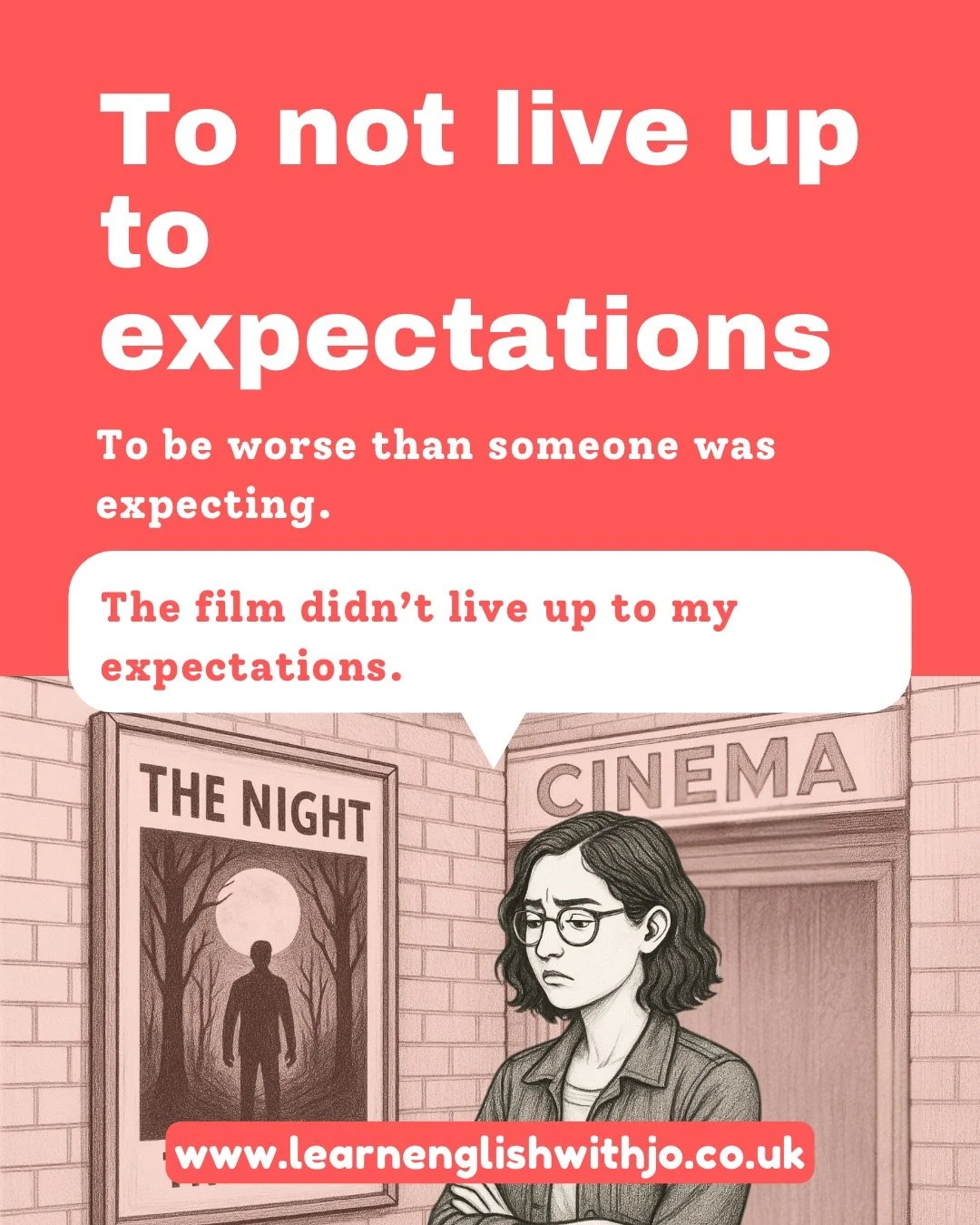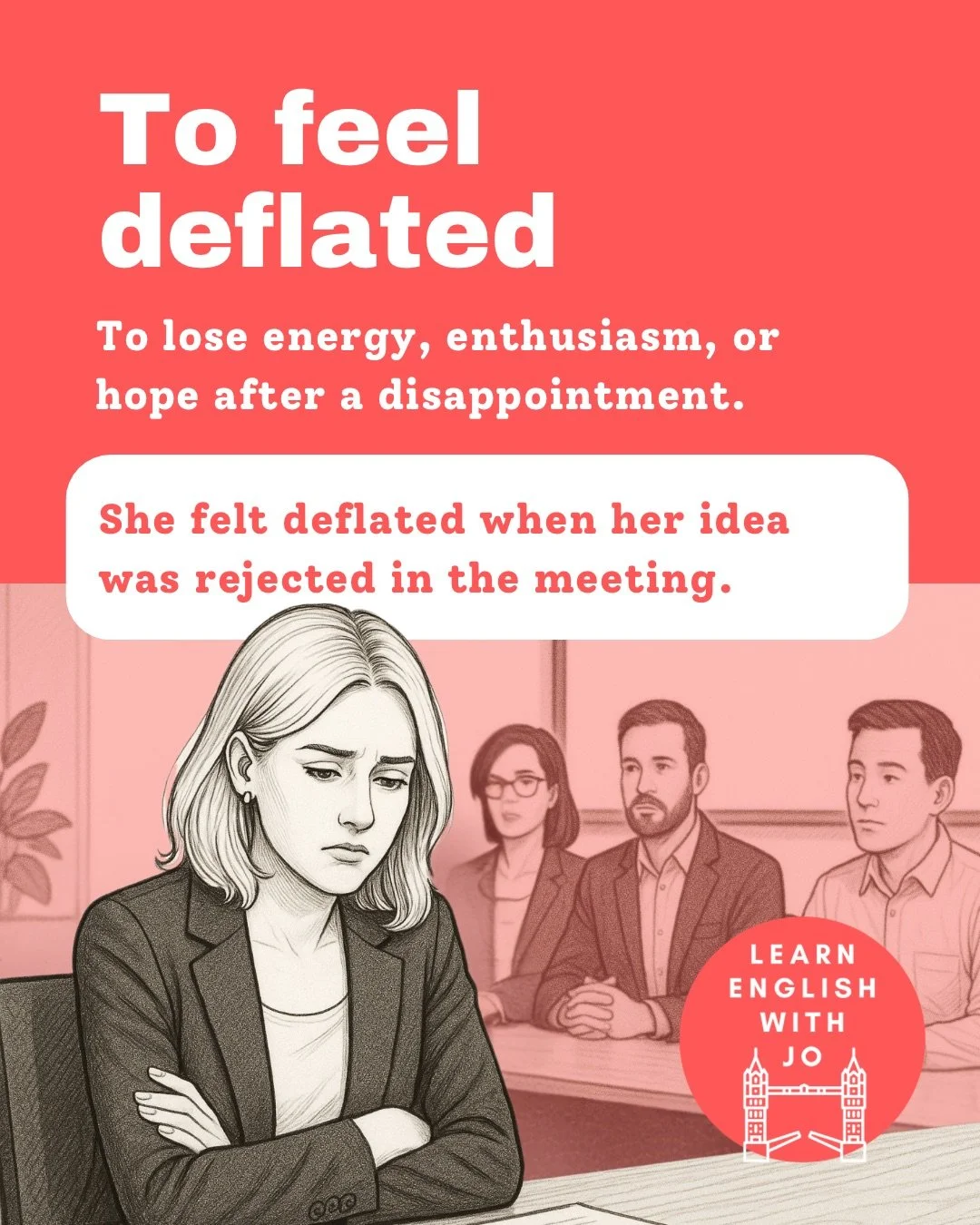8 Natural English Expressions for Talking About Disappointment
We’ve all been there; the film that didn’t quite live up to the hype, the event that sounded amazing but turned out to be a bit of a let-down.
Disappointment is one of those universal feelings we all experience, and English has lots of natural expressions to describe it; from everyday frustrations to bigger emotional moments.
Today I’ve got eight useful ways to talk about disappointment in English, with examples to help you use them naturally in real life.
1. To not live up to expectations
Meaning: When something is worse than you hoped or expected.
Example: The hotel didn’t live up to our expectations. The photos online looked much better.
You can use this phrase for almost anything that promises a lot but fails to deliver: a film, an experience, or even a person’s performance.
2. To be a bit of a let-down
Meaning: Something or someone that makes you feel disappointed.
Example: The concert was a bit of a let-down. The sound wasn’t great and the crowd was quiet.
This is a classic British expression. It’s polite, understated, and slightly self-deprecating. We often use ‘a bit of’ to soften the feeling, even when we’re really disappointed.
3. To be disheartened
Meaning: To lose hope or confidence after a setback.
Example: She felt disheartened after being rejected for the job again.
This is a slightly more formal or emotional word, often used when someone feels discouraged after trying hard to achieve something.
4. To feel deflated
Meaning: To lose energy, excitement, or enthusiasm after something disappointing happens.
Example: He felt deflated when his idea was dismissed in the meeting.
This one creates a really clear mental image. Think of a balloon losing air. It’s perfect for those moments when your motivation suddenly disappears.
5. To be underwhelming
Meaning: Not as impressive or exciting as you expected.
Example: The exhibition was really quite underwhelming. I thought it would be much more creative.
You can also say you felt underwhelmed by something:
I felt underwhelmed by the meal, especially after reading so many good reviews.
It’s a great word to describe mild disappointment.
6. To feel short-changed
Meaning: To feel that you didn’t get what you paid for or deserved.
Example: We felt short-changed after paying so much for such a small portion.
You can use this literally, when you don’t get good value for money, or figuratively, when someone doesn’t treat you fairly.
7. To be gutted (UK informal)
Meaning: To feel very disappointed or upset.
Example: I was gutted when my team lost in the final.
This is one of the most common British ways to express strong disappointment. It’s emotional, informal, and completely natural in everyday conversation.
8. To fall flat
Meaning: To fail to have the desired effect, or not get the reaction you hoped for.
Example: His joke fell flat and nobody laughed.
You can use it for jokes, speeches, performances or anything that doesn’t quite land as planned.
Disappointment is part of life, but having the right words to express it helps you communicate your feelings clearly and naturally.
These expressions will help you move beyond simply saying ‘I’m disappointed’ and sound more fluent, authentic, and expressive.
So next time something doesn’t live up to expectations, you’ll know exactly what to say.






